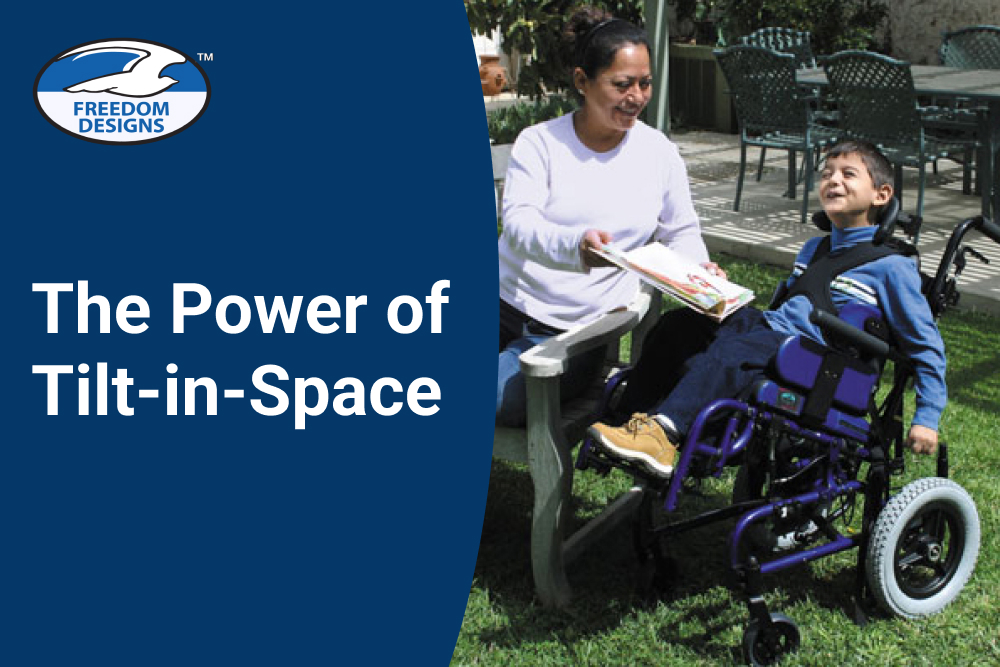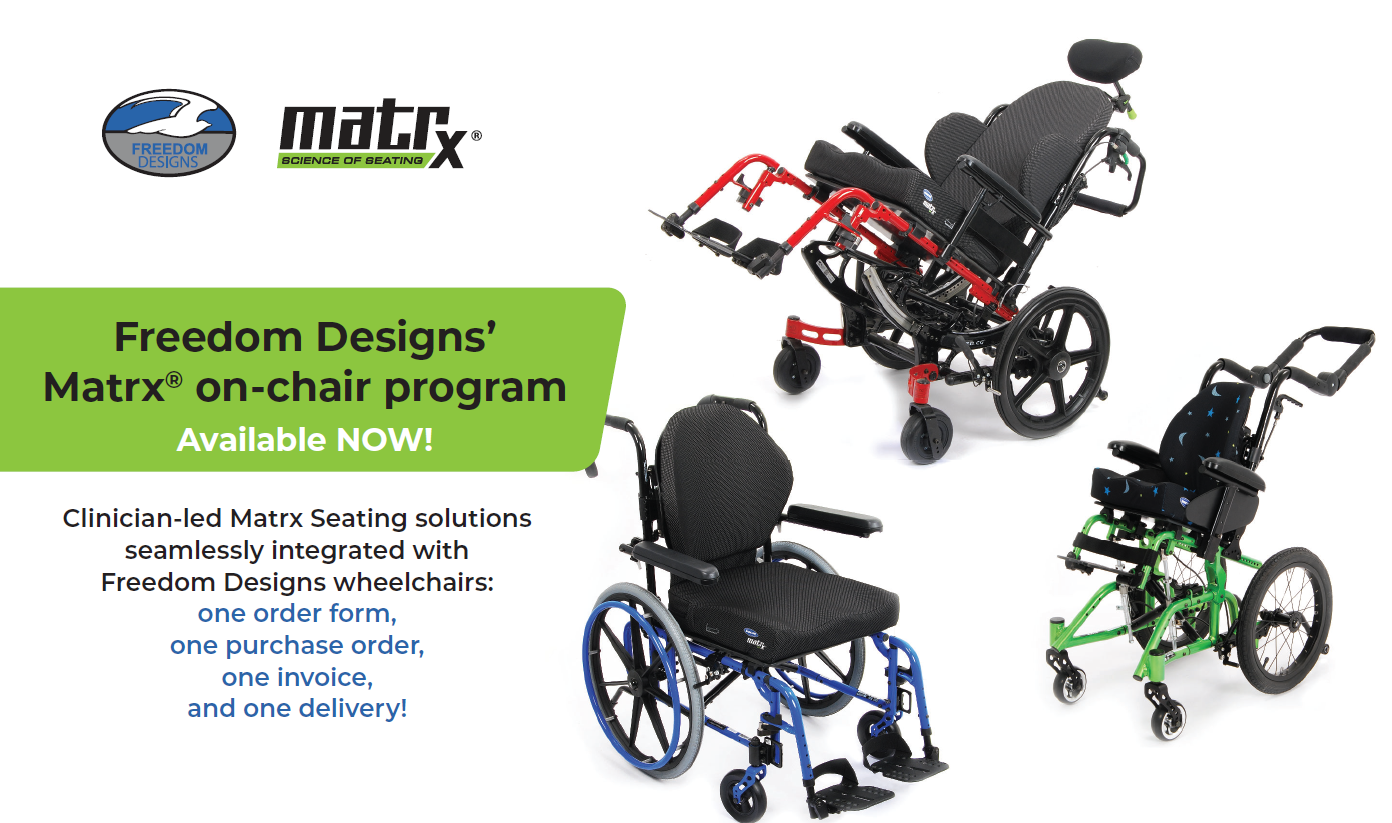Tilt-in-Space, Backed by Evidence: A Practical Guide for Pressure Management

For PTs and OTs, tilt-in-space isn’t just about comfort. It’s about protecting skin, improving posture, and maintaining independence. Knowing when and how to use tilt can make all the difference in pressure management outcomes.
When to Choose Tilt
Tilt-in-space is ideal for clients with:
- High pressure injury risk or limited weight shifting.
- Postural asymmetries needing gravity-assisted support.
- Fatigue in upright sitting that limits participation.
For long-term pressure relief and posture control, tilt-in-space often provides better outcomes than recline systems.
Recommended Tilt Angles
Clinical evidence shows that 20 degrees or more of tilt can significantly reduce pressure on the ischial tuberosities and sacrum.
- 20–30°: Effective for short pressure relief.
- 30–45°: Improves posture and sitting tolerance.
- 45°+: Best for advanced skin protection needs.
Balancing Pressure Relief and Function
Smaller tilts (10–20°) help maintain reach and engagement, while larger tilts (30° or more) enhance pressure relief and comfort. Scheduling tilt intervals helps balance activity and prevention.
Documenting Clinical Justification
Use clear, research-backed phrasing such as:
- “Tilt-in-space system recommended to enable independent pressure relief at ≥20°.”
- “Facilitates safe repositioning and reduces caregiver effort.”
Strong, evidence-based documentation improves funding success.
Freedom Designs Solutions
P.R.O. CG Tilt delivers up to 50° of center-of-gravity tilt for superior stability.
NXT Folding Tilt combines portability and protection in one compact system.
Both models are built on proven clinical evidence to deliver comfort, posture control, and reliable pressure management.
Ready to Learn More?
- Call Us: (833) 987-5800
- Contact Us to connect with a specialist
- Request a Quote for a Freedom Designs tilt-in-space system
Not Sure Where to Start?
It looks like Javascript isn't enabled in your browser. Please enable it in order to fill out this form.


